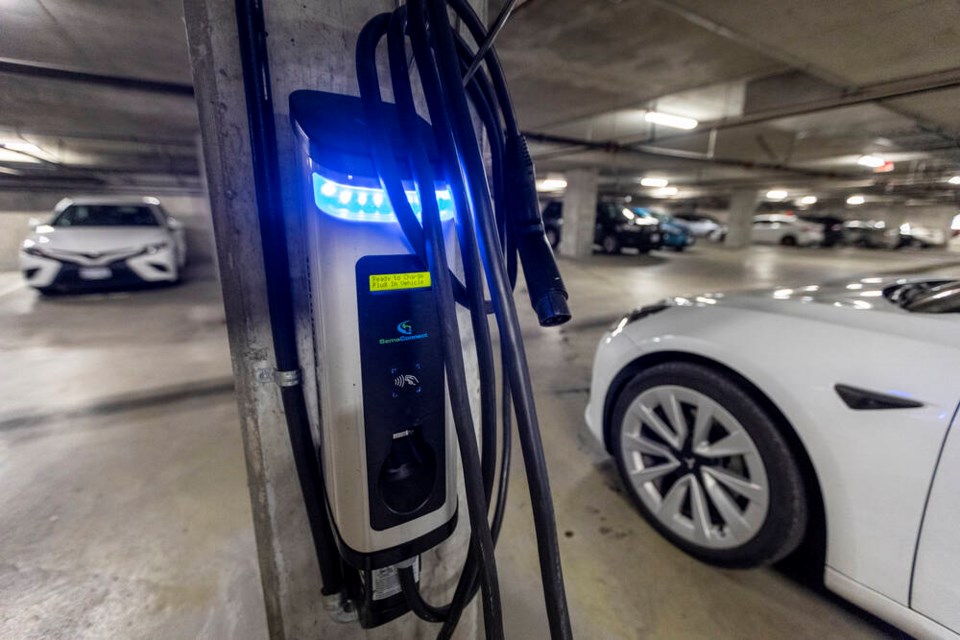The British Columbia government is taking steps to accelerate the transition to zero-emission vehicles to meet its 100-per-cent sales target five years sooner than initially planned.
If passed, the legislation to amend the Zero-Emission Vehicles Act would increase access and choice for electric vehicle buyers, as new provincial funding expands the charging network, a statement from the Energy Ministry said.
B.C. would require all new light-duty vehicles sold in the province, including passenger cars and trucks, to be emission-free by 2035, it said, five years before the initial goal of 2040.
The accelerated timeline would mandate automakers to meet an escalating annual percentage for light-duty zero-emission vehicle sales and leases, with targets of 26 per cent by 2026, 90 per cent by 2030 and 100 per cent by 2035.
A statement from Energy Minister Josie Osborne said the province is the “first in the world” to put an EV sales target into law, and the proposed amendments would make it easier for people purchasing their next vehicle to choose electric.
After the announcement of the new timeline, the New Car Dealers Association of BC issued a news release encouraging the province to take a more flexible approach, saying its rules may have unintended consequences that could slow the adoption of clean energy vehicles.
It noted the legislation means automakers face the prospect of a significant penalty for every non-zero-emission vehicle sold beyond the allowable limits. Combined with reduced inventory, this could drive up the price of all vehicles, both new and used, it said.
Association president Blair Qualey said post-pandemic supply issues are still affecting the industry, that the province lacks an adequate charging network, particularly in B.C.’s Interior and the north, and zero-emission vehicles remain relatively unaffordable, even with incentives.
“By building flexibility into the regulatory regime and penalty structure, we stand a better chance of collectively meeting the kind of success we all want, and in doing so creating a cleaner, greener future for all British Columbians,” he said in Tuesday’s news release.
The province said it has consistently exceeded sales targets for zero-emission vehicles since the act was first passed in 2019.
It said B.C. has the highest percentage of electric vehicle sales in Canada this year, making up nearly 21 per cent of all light-duty passenger vehicles sold.
The province also announced Tuesday that B.C. has “recharged” its Go Electric EV Charger Rebate Program with $7 million in new funding.
The program operates on a first-come, first-served basis, providing funding for homes, workplaces and multi-unit residential buildings needing to install electric vehicle charging infrastructure.
EV charger rebate applications for single-family homes and workplaces reopened on Tuesday.



